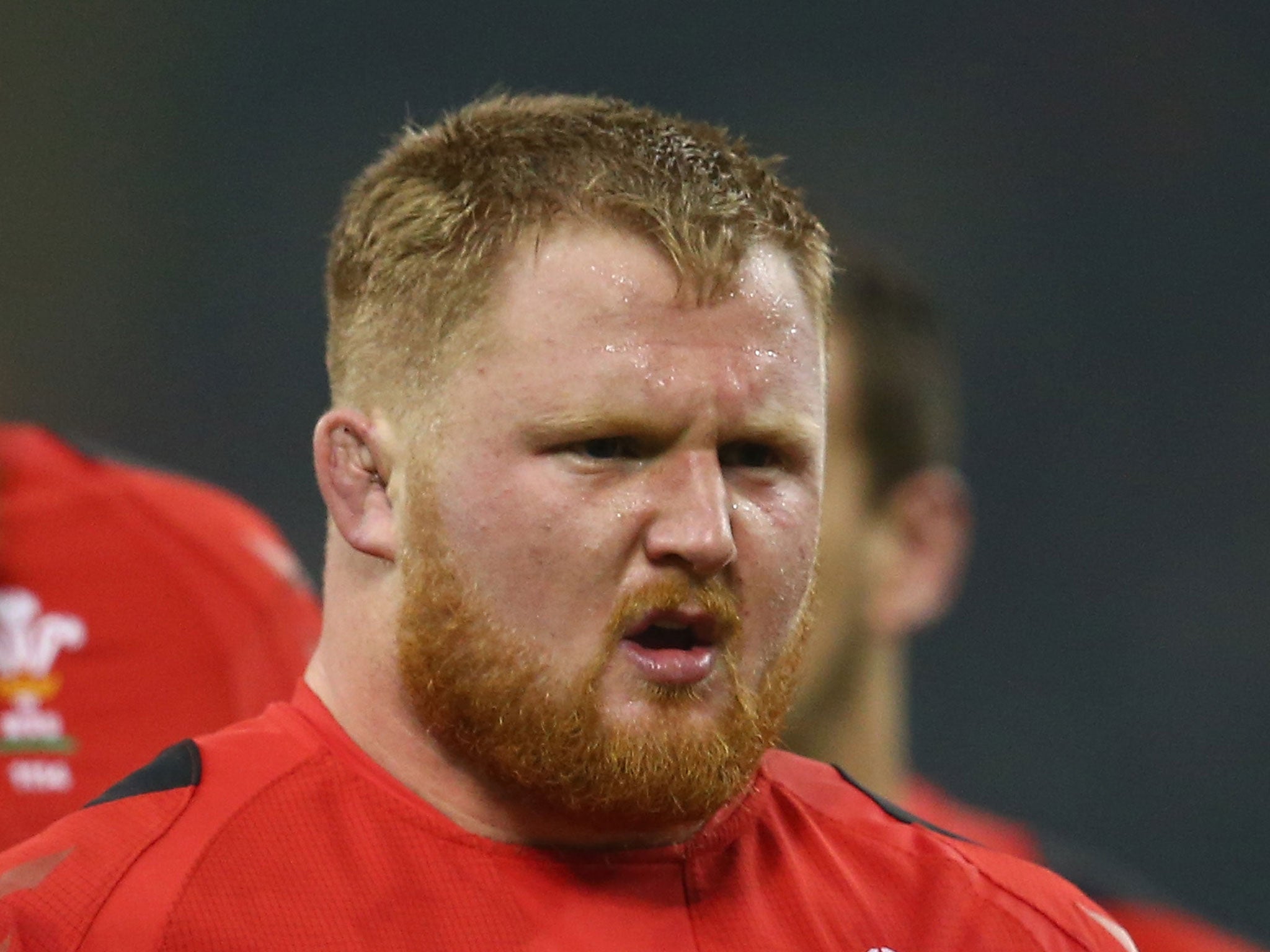Six Nations 2015: Welsh hopes clouded by injury concerns
Whether Samson Lee, the Scarlets tight-head prop who damaged an Achilles tendon at the first scrum of the match, makes it to the World Cup will depend on the severity of the injury.

Your support helps us to tell the story
From reproductive rights to climate change to Big Tech, The Independent is on the ground when the story is developing. Whether it's investigating the financials of Elon Musk's pro-Trump PAC or producing our latest documentary, 'The A Word', which shines a light on the American women fighting for reproductive rights, we know how important it is to parse out the facts from the messaging.
At such a critical moment in US history, we need reporters on the ground. Your donation allows us to keep sending journalists to speak to both sides of the story.
The Independent is trusted by Americans across the entire political spectrum. And unlike many other quality news outlets, we choose not to lock Americans out of our reporting and analysis with paywalls. We believe quality journalism should be available to everyone, paid for by those who can afford it.
Your support makes all the difference.Funny how perspectives change. Before the start of this year’s Six Nations Championship, Warren Gatland, the Wales coach, hinted that it took a distinctly second place behind a good World Cup in the autumn. After his players dashed Irish hopes of a grand slam at the Millennium Stadium with a 23-16 win on Saturday, you sense that Gatland would quite like to tuck away another Championship win first.
But what wonderful preparation for the World Cup this was, a vibrant intensity and atmosphere which will be created again come September. Yes, Wales have still to play Italy in Rome this Saturday, possibly without their front-rank props, and Ireland must travel to Edinburgh to face a Scotland side desperate to avoid the wooden spoon, but as a dress rehearsal for the global tournament (in 2011, Wales knocked out Ireland in the quarter-finals), this was gold dust.
“We are a better team than we were before the [2011] World Cup,” Shaun Edwards, whose work as the Welsh defence coach received the severest examination, said. “I am not going to say we are a better team than we were at the World Cup but we are in better shape. I just think we have a bit more understanding, the players have played together longer and some of them are a bit more mature.”
Whether Samson Lee, the Scarlets tight-head prop who damaged an Achilles tendon at the first scrum of the match, makes it to the World Cup will depend on the severity of the injury. Gethin Jenkins, the veteran loose-head, is struggling with a hamstring strain and both Jamie Roberts and Richard Hibbard took blows to the head that will require them to go through the concussion protocols.
Ireland, their run of 10 successive wins ended, will go to Edinburgh nursing damaged pride and something of a grudge against the refereeing of Wayne Barnes, notably in the final moments when a lineout maul was turned over on the Welsh line and then a retreating Wales scrum received a penalty. The neutral will observe that Barnes was consistent throughout a match in which his officiating contributed towards the spectacle. Ireland may have played too narrow a game, much of it revolving around Jonny Sexton who, on the day, was out of sorts.
The inaccuracies of the fly-half’s game were reflected by others in green but Joe Schmidt, Ireland’s coach, does not believe defeat requires a change in approach: “The strategy was the same as over the last few weeks; results hang on narrow margins,” Schmidt said. “Some good things came out of the game. You don’t need to throw the baby out with the bath water.”
The turning point came midway through the second half when a period of intense Ireland pressure yielded no points and then Wales created a try on almost their first visit of the half to the opposing 22. Not only that, it stemmed from a lineout steal by the outstanding Luke Charteris and, 15 phases later, Scott Williams, the replacement for Roberts, dummied through to score.
“We took so much confidence from keeping Ireland out when they went through so many phases [32, then a penalty, then another 15],” Dan Biggar, the Wales fly half, said after his side had made 250 tackles throughout the game. “We knew if we could score then, it would be a real game-changer. The amount of analysis work and preparation which has gone in is endless. Coaches deserve a huge amount of credit. For us as players, it was just how much we wanted it.”

NatWest are proud to support Rugby. Current account customers can win exclusive rugby experiences. It’s not who you know, it’s who you bank with. Visit natwest.com/rugbyreward
Join our commenting forum
Join thought-provoking conversations, follow other Independent readers and see their replies
Comments